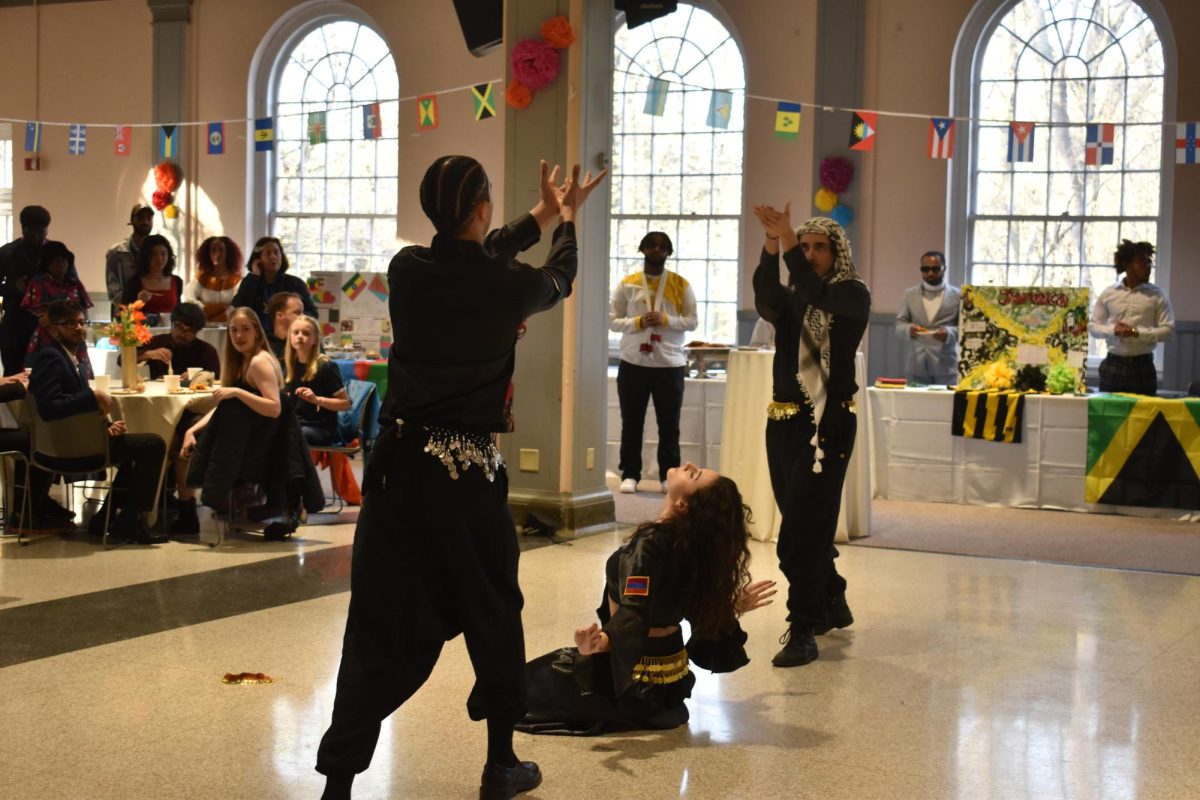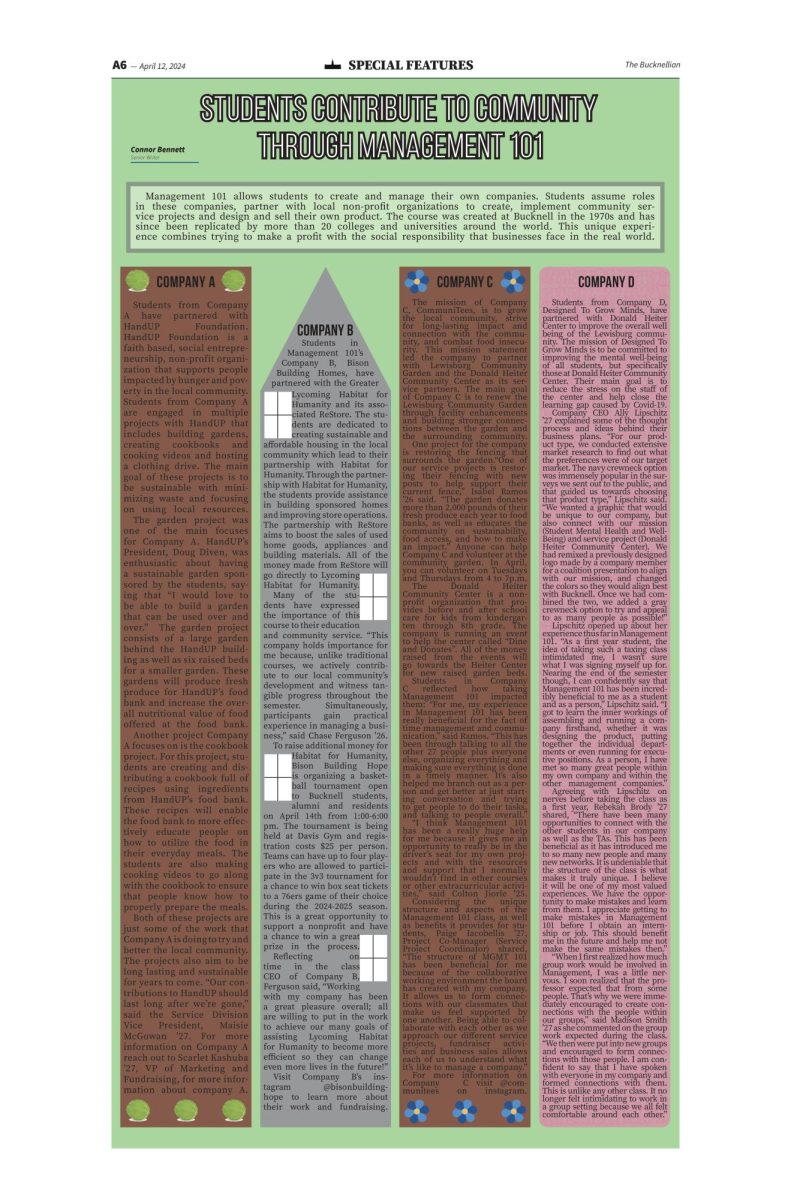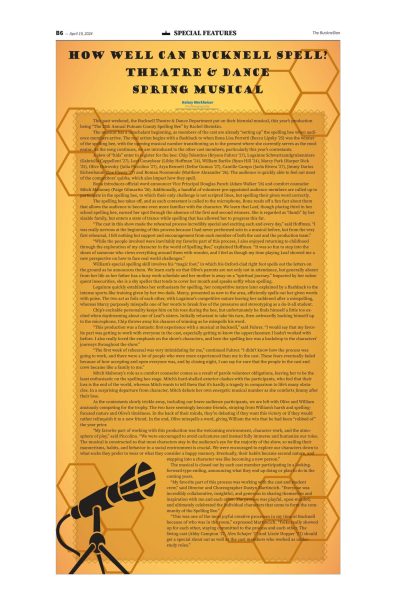Call these attacks by their rightful name

November 9, 2017
After the most recent tragedies to befall innocent civilians in the United States, it’s time to broaden our definitions of what constitutes terrorism.
There is no single definition of terrorism, but most scholars agree that it generally involves a non-state actor using violence or the threat of violence to achieve a political goal. Under this definition, some of the horrific acts of violence that have occurred in the past few years do not constitute terrorism.
While I agree with the principles of this definition, it is ridiculous that we don’t have a strong way of communicating the pain that some acts have caused. The shooters in Las Vegas, Newtown, Conn., Charleston, Va., and elsewhere may not have had truly “political” goals, but they certainly did mean to scare us, to harm us, to kill us. To terrorize us.
Killing groups of innocent people and creating stories so shocking that they dominate national headlines should not be considered different in the eyes of our elected officials or the public itself.
It is even more upsetting that race seems to, at times, play a significant role in how we label a tragedy as an act of terror. The perpetrators of the Orlando, Fla. and San Bernardino, Calif. attacks were Arab; the perpetrators of the Las Vegas and Newtown attacks were not. Obviously, officials don’t classify an act as terrorism simply because the antagonists were Arab or Muslim. For instance, the Orlando shooter swore allegiance to ISIS. Still, it does not reflect well on our society if we do not recognize the equal extremity of acts perpetrated by Muslims and white Christians.
It doesn’t matter who perpetrates these crimes. At the very least, we should label such attacks as terrorism until we have a better word to communicate the severity of the action without implying the political goals.
Driving a truck through a crowded bike path is terrorism. Shooting at a concert crowd is terrorism. Bombing supporters at a marathon finish line is terrorism. Invading a school or church or nightclub and shooting those inside is terrorism.
Find me the word I’m looking for and I’ll gladly relabel these events. Until then, let’s stop the cringe-worthy anticipation of whether our leaders will call such attacks by their rightful name.
Student and faculty responses
Julie Spierer, Special Features Co-Editor
Students weigh in
The Bucknellian asked student interns from the Bucknell Institute for Public Policy (BIPP) to reflect and respond to the piece above.
“I agree with [this] definition of terrorism in general. However, if you start labeling all terrifying killing events [as] terrorism, I think the word terrorism will lose its meaning. Proper naming of events is important because it highlights the specific issue we are tackling. For example, the recent Texas shooting will not be called a terrorist attack but instead a mass shooting by a mentally ill man. By defining and identifying the issue accurately and properly, we can start figuring out a contingency plan and measures that will help prevent similar issues [from occurring] again in the future…In word, without appropriate labeling of tragedies, people will not be able to trace back the history [of terrorism] and extract valuable learning lessons from each case. Terrorism will be just become a catchphrase that casually describe tragedies, big or small.” Yiwei Wang ’19.
“As horrific acts of violence begin occurring with increasing frequency, we need to realize that terrorism should not be defined in such a narrow scope. Any act of violence that causes fear should be labeled terrorism. People are concerned that by labeling an event as an act of terrorism it makes the act inherently political, but there are political reasons for any of these acts of violence, whether it is hate crimes, gun laws, or mental illness.” Caldwell Harden ’19.
“I do not agree with the entire premise of this article. It ignores a key issue. There is, in fact, a definite definition of terrorism. Terrorism is the use of violence against civilians for the political gain of an actor, whether that be state or non-state. The problem in America isn’t the definition of terrorism; the problem is racism. We don’t need to broaden the definition, we need to use it.” Madison Simon ’18.
A professor’s insight
The Bucknellian extended the conversation to include associate professor of political science Chris Ellis.
Ellis clarifies that labeling any of the attacks that Rosenblatt cited as “terrorism” is fine.
“Anything that might scare or discourage someone from visiting Vegas, going to a concert, attending church, or riding a bike has much the same effect on how people think and behave. And the victims are certainly no less dead,” Ellis said.
Still, Ellis emphasizes that we must be careful in applying the label of terrorism to certain actions. According to Ellis, when violence is committed with political motivation or by an agent of a foreign, lawmaking location, agencies are awarded with the power to search assets, wiretap, etc. which they are not given when investigating violence committed for alternate reasons. The political motivation that is affiliated with a “terrorist attack” awards process protections that are far lower than those afforded to people simply labeled as violent.
“The greatly expanded surveillance powers given to the government in the post 9/11 PATRIOT act, for example are [generally] thought to apply only to terrorists or suspected terrorists using the ‘political motivation’ definition,” Ellis said.
Ellis added that he believes that it’s certainly true that many think that this power that the government possesses to fight terrorism is unconstitutional, and violates due process protections, even when it is only applied to suspected terrorists.
Nonetheless, he argues that the definition of terrorism is one “that we need to keep in mind, and one that wasn’t just created for random reasons,” Ellis said.


























